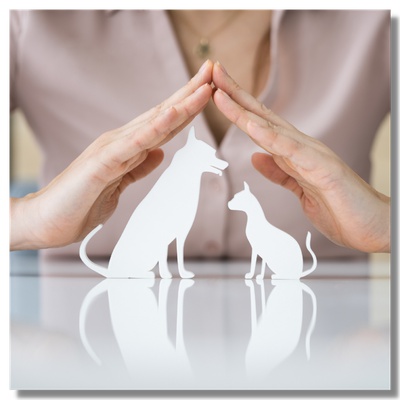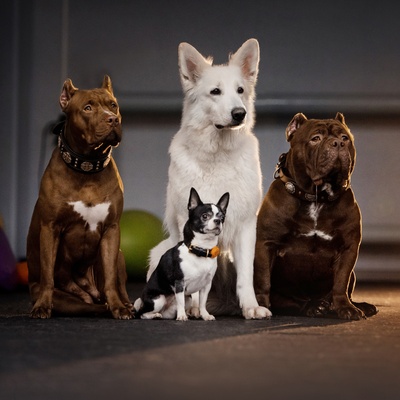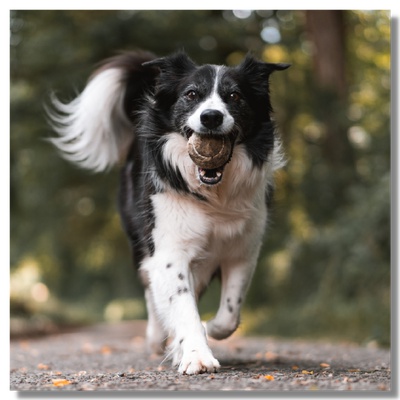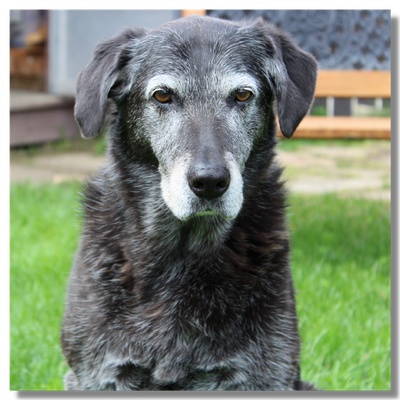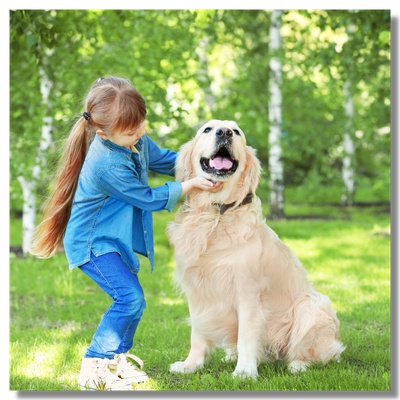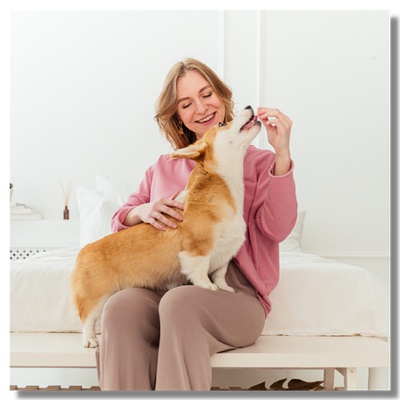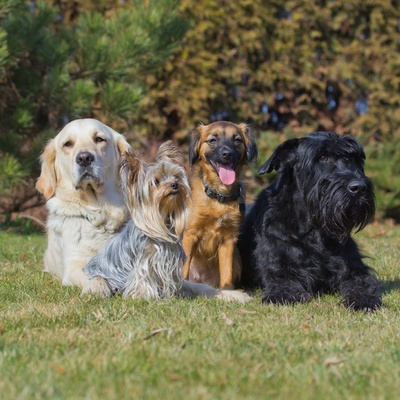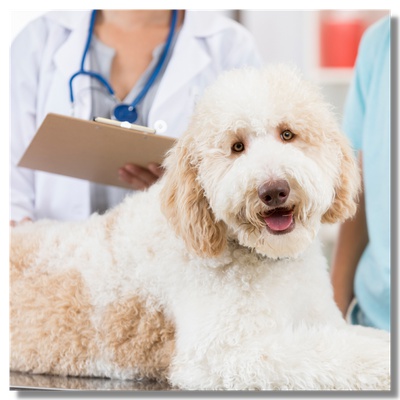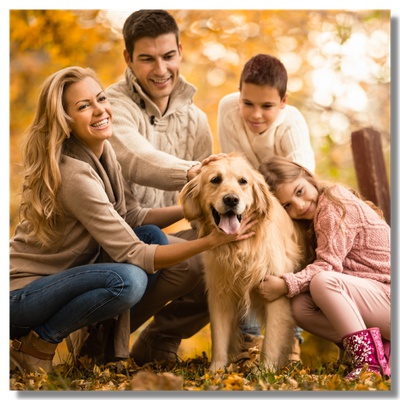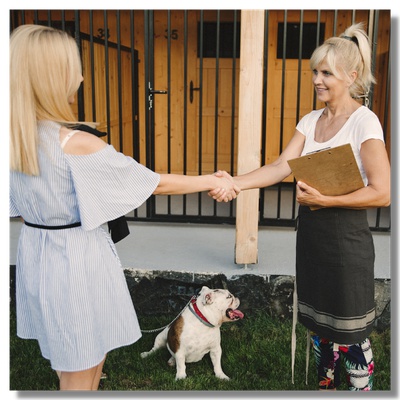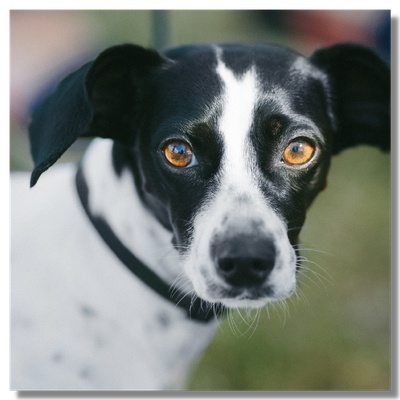Choosing a dog
There are many factors you should take into consideration when choosing a dog for yourself. Find out what to pay attention to when deciding which breed matches your lifestyle and meets your criteria.
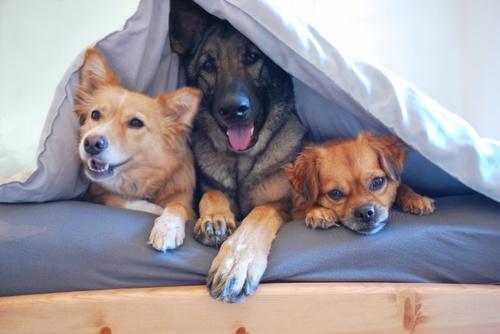
There are many factors you should take into consideration when choosing a dog for yourself. Find out what to pay attention to when deciding which breed matches your lifestyle and meets your criteria.
Designed to help you in the process of choosing the right dog breed for yourself, this complete guide contains all the most important selection criteria that you should consider. Thanks to our guide, you’ll be able to make the best, most deliberate, and well-informed decision.
First and foremost, you need to be aware that a decision to adopt a dog should not be taken on a whim, and you should take your time to think about whether you’re ready for this step. Keep in mind that becoming a dog owner is a major decision that will influence your current lifestyle in many ways.
Try answering the following questions to find out if you’re truly prepared to get a dog and which type of breed:
Is my apartment/house big enough for a dog? Will I have time to train my dog and take them for walks or exercise sessions? Do I have children or other pets, and if so, will the breed I have in mind be suitable for cohabitation with them? Am I or other family members allergic to dogs? Who will take care of the dog when I’m on vacation?
Adopting a dog means a commitment for the rest of their lives, which is 10-15 years in most cases. Moreover, during this whole period, you’ll be responsible for your dog’s health and general maintenance, both requiring a lot of your time and money.
Although all the resources, both material and not, that you invest in your dog are nothing compared to their love, devotion, and dedication, you need to be aware of them and completely sure that having a dog is really what you want.
We can help you!
Every dog has its own character and specific needs. Making the right choice will ensure his well-being and yours.
Thanks to our quiz, you'll know which breed is right for you, depending on your personality, lifestyle and many other criteria.
Don't wait any longer and take the quiz to find out the answer!
Click on the title of the chapter you are interested in.
Although most people are prone to decide on adopting a puppy, adult and senior dogs can also be great companions, depending on what it is that you’re looking for in your future dog.
As far as cuteness is concerned, puppies steal everyone’s hearts, leaving all the other dogs far behind them. However, when adopting a puppy, no matter how adorable they are, you need to be aware of several potential risks and disadvantages. Firstly, puppies require a lot of attention and training, as they need to be taught everything from scratch. That means that especially the very beginning of being a puppy owner might be a tough and intense period. Moreover, you cannot be sure about your dog’s character at the point of adoption. Your puppy might grow to have a temperament far different from what you’d expect them to be. Apart from that, adopting a young dog means a long commitment of around 15 years.
If you’re afraid that owning a puppy would be too big a challenge for you, you may want to consider adopting an adult dog. The advantage of fully grown dogs over puppies is that their characters are completely formed, so you can have an idea of their personality and energy level. Many adult dogs have already been socialised to some degree, so their adaptation to the family life can be easier. However, such dogs might also have experienced some traumatic events, which makes them less likely to trust people. Although an adult dog may already be trained, it doesn’t mean that you won’t need to devote some time to that.
Often overlooked, senior dogs can be great companions, especially for people looking for a lower-energy dog. Although they usually don’t require training, these dogs might need special attention and care, as well as more frequent visits to a vet, due to their old age and possible health conditions. Moreover, as they are adopted already late in their life, you will not have as much time with them as it is in the case of puppies or adult dogs.
Because senior dogs are often forgotten, they are frequently doomed to a lonely life in a shelter or euthanasia. By adopting one of them, you can bring a lot of happiness to their life and save them from this sad fate.
When deciding to adopt a dog, it’s crucial to consider how big they’ll become as fully grown and decide if you’re ready for a big dog that needs more exercise and space.
Do you think that the smaller the dog the less responsibility on the owner’s side? That’s not necessarily true, as small dogs also require a lot of care and attention. They tend to be more delicate, which in turn makes them more vulnerable to injuries. Moreover, they are usually more sensitive to temperatures. For this reason, your dog should wear pet clothing to keep them warm during walks on colder days. As their bodies are small, they usually need to be fed and taken on potty breaks more frequently. And let’s not forget that small dogs also require training, just as any other dog!
Owning a big dog also comes with some special responsibilities and factors to consider. Firstly, such dogs need much more space to move around, and they will most probably feel both unhappy and uncomfortable in a small apartment. They usually have higher energy levels, which means that they require more physical activity on daily basis. Apart from that, with big dogs come big expenses, as food, dog supplies and medical treatments become more pricy.
Some dogs are more energetic than others and require more physical and mental stimulation. When choosing a dog for yourself, make sure that you’ll be able to meet their needs in this aspect.
Different dogs have different energy levels, which are often, but not only, determined by their breed. Before you adopt a dog, make sure to choose one that matches your expectations towards their activity needs. However, be aware that every dog needs regular exercise in order to be healthy and happy. Daily walks are a must, so if you think you won’t be able to fit them into your busy schedule, think again if getting a dog is something for you. You may also want to choose a lower-energy dog, for example a Basset Hound.
If you’re an active and sporty person and are looking for a partner to accompany you in your various adventures, be sure to choose the dog that will keep up with your pace. Never neglect your dog’s needs, especially in terms of exercise and attention, as it may lead to the pet’s behaviour problems. In other words, before adopting a dog, you should do a thorough research to make sure the dog is compatible with your lifestyle.
Take the test and find out the dog breed that matches your personality and lifestyle.
Coat shedding is one of the inconveniences of having a dog or a cat. Apart from that, your pet’s maintenance needs include vet visits and addressing any health conditions.
Although the grooming needs differ from breed to breed, every dog requires at least basic grooming. Moreover, most short-haired dogs shed their coat, so that’s something you should be aware of, especially if you or any of your family members suffer from allergies. You may use some tools to help you reduce the shedding, but you won’t be able to fully get rid of it. Some short-muzzled breeds are more demanding in terms of maintenance, and their skin folds require regular cleaning to avoid infections.
Apart from grooming, some special care needs to be given to dogs with floppy ears as they require frequent ear cleanings and are susceptible to ear infections. Some small breeds can also be more probable to suffer from dental conditions, requiring special procedures and treatments. Brachycephalic breeds, meaning dogs with a flat, wide-shaped head, are also often prone to health problems, which are a result of their build.
When choosing a dog, you should take into account all the people and pets that live with you and make sure that introducing a dog into your home environment will be as smooth and unproblematic as possible.
Your family makeup is definitely something you should take into consideration when deciding on adopting a dog. If you have children or are planning to start a family, think about choosing a breed that is known to be friendly to children. A similar rule applies when you already have a dog or any other pet. Firstly, make sure that your pet gets along well with other animals and doesn’t mind sharing space and attention. If you want to have two dogs, it’s recommended to keep the age gap to four or five years. In case you have a cat, check which breeds are good companions for dogs.
Would you rather buy a purebred dog from a breeder or adopt a mixed-breed one from a shelter? If you’re still unsure, consider all the advantages and disadvantages of either choice.
It comes without a doubt that purebred dogs are extremely popular among pet owners, and there are certain advantages that they have over mixed dog breeds. Firstly, although all dogs are different, there are some characteristics that each breed has, which allows you to predict your dog’s personality and looks to some extent, even at an early stage of their lives. Moreover, certified breeders are required to run certain DNA tests and screening schemes to avoid health conditions in the puppies. This can assure you about the dog’s health, however, be aware that such tests are not a full guarantee that your dog will not suffer from any illness.
Once you have chosen the breed that matches your expectations and your lifestyle, another important decision you’ll have to make concerns the breeder from which you’re going to buy your puppy. You may try asking your friends and family for recommendations, but there are also associations, such as The American Kennel Club that offer lists of assured breeders. Because such breeders are required to comply with a set of regulations, they are much more reliable, and the risk of problems with a dog purchased from them is much lower.
Mixed dog breeds are the combination of at least two dog breeds, making these dogs unique in terms of both temperament and physical characteristics. You can never fully know how your puppy will look or behave once they’re old, so you must be ready for the unexpected. However, mixed-breed dogs are generally known to be intelligent and make great companions, and they are also said to be less prone to health problems than purebred dogs. Apart from that, as such dogs are often found in shelters, adopting one means saving them from euthanasia or shelter life. And you can be sure they’ll repay you for that with all their love and devotion!
A decision to adopt a dog is an extremely important one, not only because it implies a full commitment for around 15 years of your life, but also because it’s very complex, with several factors to consider.
Therefore, we encourage you to do a thorough research and not rush. Make sure that you are really prepared to become a dog owner and that the dog chosen by you will be a good fit for your and your family’s lifestyle.
Choosing a dog that matches your personality and lifestyle will ensure your well-being and his!

